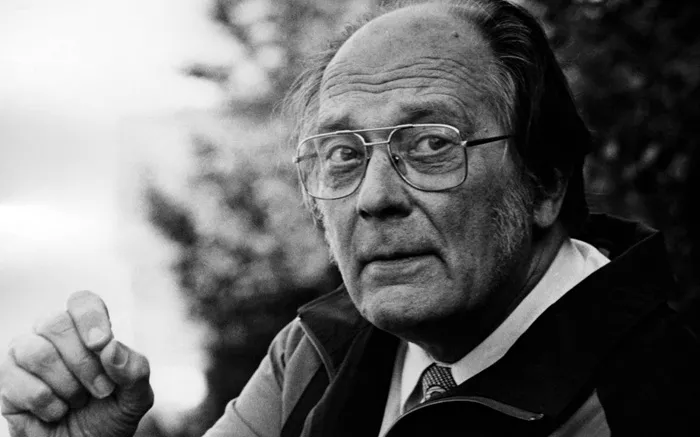The resurgence of interest in Estonian author Jaan Kross’s historical fiction in India comes at a time when readers are increasingly turning to literature that mirrors their socio-political realities. Kross, often regarded as Estonia’s greatest writer of the 20th century, chronicled his nation’s long history of subjugation through epics that resonate far beyond the borders of the Baltic region. His works—recently made accessible to English readers through translations such as Between Three Plagues—speak powerfully to an Indian audience grappling with censorship, surveillance, and questions of institutional autonomy.
A Baltic Legacy of Resistance
Often overlooked in mainstream European historiography, the Baltic states, including Estonia, have long resisted integration into dominant Western narratives. Estonia’s past—marked by successive occupations by German, Danish, Swedish, and Russian forces—reflects a deep-rooted tradition of defiance against external rule. Kross (1920–2007) channeled this legacy into his novels, using fiction to explore Estonia’s cultural memory and political resistance.
His life closely mirrored the upheavals he depicted in his literature. After enduring Nazi occupation during World War II, Kross was deported by Soviet authorities in 1946 to a labor camp in Russia. He returned to Tallinn in 1954, eventually producing a body of historical fiction that doubled as veiled commentary on totalitarianism. Writing under censorship, Kross used the past to reflect on the present, drawing subtle parallels that continue to resonate in contemporary democratic societies.
Relevance to India’s Political Climate
Kross’s nuanced depictions of authoritarian power structures strike a chord with Indian readers today, particularly amid growing concerns about academic freedom, dissent, and the pressures of state scrutiny. His narratives—though rooted in Estonia’s past—reflect the anxiety of intellectuals and citizens living under regimes where political expression can carry heavy consequences.
The recent case of Ali Khan Mahmudabad, a professor at Ashoka University, has amplified fears about self-censorship and institutional intimidation in India’s academic spaces. Though Kross himself never engaged in overt political activism, his characters often embody a quiet but unyielding resistance—qualities Indian readers find particularly poignant in today’s context.
The Czar’s Madman: A Cautionary Tale
Among Kross’s most celebrated works is The Czar’s Madman, first published in 1978 and translated into English in 1992. The novel is set in early 19th-century Estonia during the reign of Tsar Alexander I and follows the story of Timotheus von Bock, an aristocrat who challenges social hierarchies by marrying a peasant girl and advocating for political reform.
Von Bock’s radical ideas and his candid letter to the Tsar—demanding constitutional governance and legal equality—lead to his incarceration. The story, narrated through the diary of his brother-in-law, Jakob Mattick, blurs the boundaries between history and fiction, personal reflection and public protest. The novel’s emotional and intellectual intensity transforms a tale of one man’s downfall into a larger commentary on justice, power, and idealism.
Literature Reflecting Global and Personal Struggles
Von Bock’s struggle with the entrenched powers of his time mirrors that of other historical figures in revolutionary Europe, yet it also resonates with readers in countries facing contemporary political turmoil. His insistence on egalitarianism, the moral dilemmas of his privileged status, and the backlash he endures all find echoes in today’s debates about social justice, equality, and civic responsibility.
Kross’s fiction reveals how the fight against oppression often unfolds not only in public squares or parliaments but also in private homes, academic circles, and moments of quiet defiance. The language of The Czar’s Madman—frequently interspersed with untranslated German, Latin, and French—adds a layer of authenticity, inviting readers to engage deeply with the period while drawing their own parallels to current events.
A Universal Warning
Through his carefully crafted narratives, Kross suggests that sweeping political change often begins with “small motions in space”—a phrase from his writing that captures the incremental erosion or affirmation of freedom. Whether it is the stroke of a pen, a whisper of dissent, or a public act of resistance, such moments carry the potential to shape human destiny.
For Indian readers, these reflections feel especially urgent. The unfolding political landscape, marked by arrests, institutional clampdowns, and ideological policing, draws unsettling comparisons to the world Kross portrays. His fiction serves not only as historical documentation but also as a mirror held up to modern societies.
A Baltic Voice with Global Relevance
Though set in a seemingly distant time and place, Kross’s novels offer lessons that transcend geography. They affirm the power of literature to illuminate injustice, question authority, and preserve the memory of those who resist. In a global context marked by democratic backsliding, his stories remind readers that the struggle for freedom is both timeless and universal.
With masterful translations now available, Kross’s work is finally receiving the international attention it deserves. For Indian readers confronting a precarious cultural and political climate, his novels may prove both a warning and a source of inspiration.

